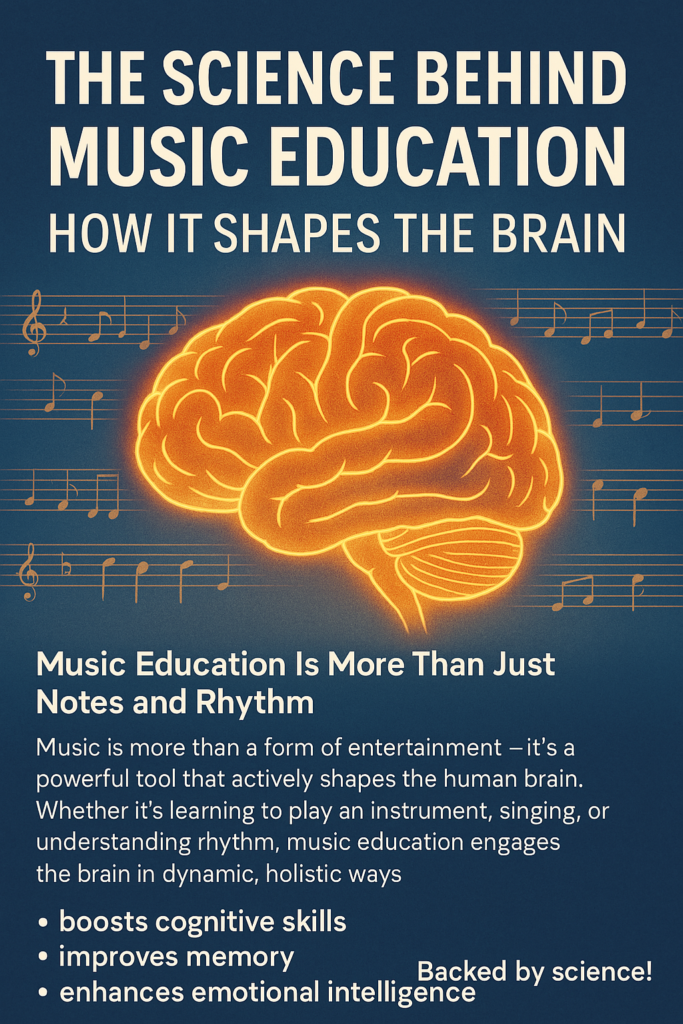The Science Behind Music Education: How It Shapes the Brain
Music Education Is More Than Just Notes and Rhythm
Music is more than a form of entertainment — it’s a powerful tool that actively shapes the human brain. Whether it’s learning to play an instrument, singing, or understanding rhythm, music education engages the brain in dynamic, holistic ways.
1. Music and Brain Development
Neuroscience shows that music stimulates multiple brain regions at once — including auditory, motor, and visual-spatial systems. This multisensory experience builds stronger neural pathways and fosters healthy brain development.

Key benefits include:
- Improved memory and retention
- Faster neural processing
- Better fine motor coordination
- Stronger communication between brain hemispheres
2. Cognitive Benefits of Music Education
Learning music sharpens key cognitive skills. Students develop pattern recognition, memory, and critical thinking by reading sheet music, maintaining rhythm, and performing with precision.
Music education helps boost:
- IQ and problem-solving ability
- Language and reading development
- Mathematical thinking and logic
- Focus, discipline, and attention span
3. Emotional and Social Intelligence Through Music
Music teaches more than technique — it nurtures emotional depth and social connection. Group performances require listening, patience, and empathy. Individual practice builds discipline and emotional awareness.
Emotional and social benefits:
- Boosted self-esteem
- Reduced stress and anxiety
- Greater emotional regulation
- Improved teamwork and communication skills
4. Music Education Builds Lifelong Brain Power
The benefits of music education don’t stop in childhood. Adults who studied music have better memory and auditory processing in later life. Even learning an instrument later in life keeps the brain adaptable and strong.
Musicians tend to have more resilient brains and are better at multitasking, processing speech in noisy environments, and staying mentally sharp with age.

5. Final Thoughts
Music education isn’t just about performance — it’s about developing the brain, the heart, and the human spirit. From improving academic success to fostering lifelong cognitive health, music offers priceless returns.
Whether you’re a parent, an educator, or a student, supporting music education is an investment in the future of human potential.
🎵 Did You Know?
- Children who learn music tend to perform better on standardized tests.
- Playing an instrument activates nearly every region of the brain.
- Music training improves language comprehension — even in noisy settings.
Interested in exploring music education or lessons?
Start today — it’s never too early or too late to shape your brain through music.
